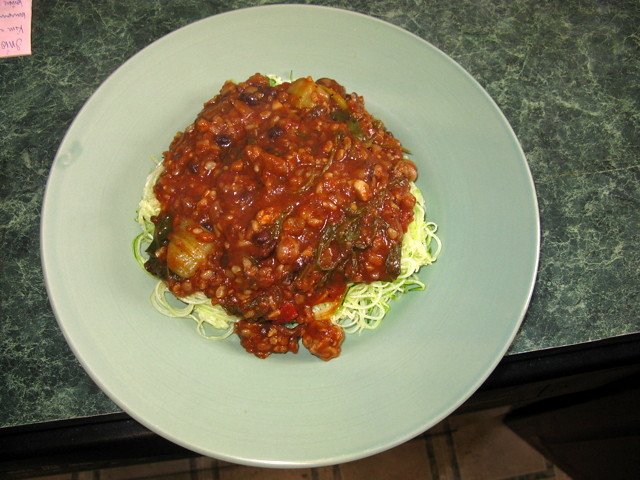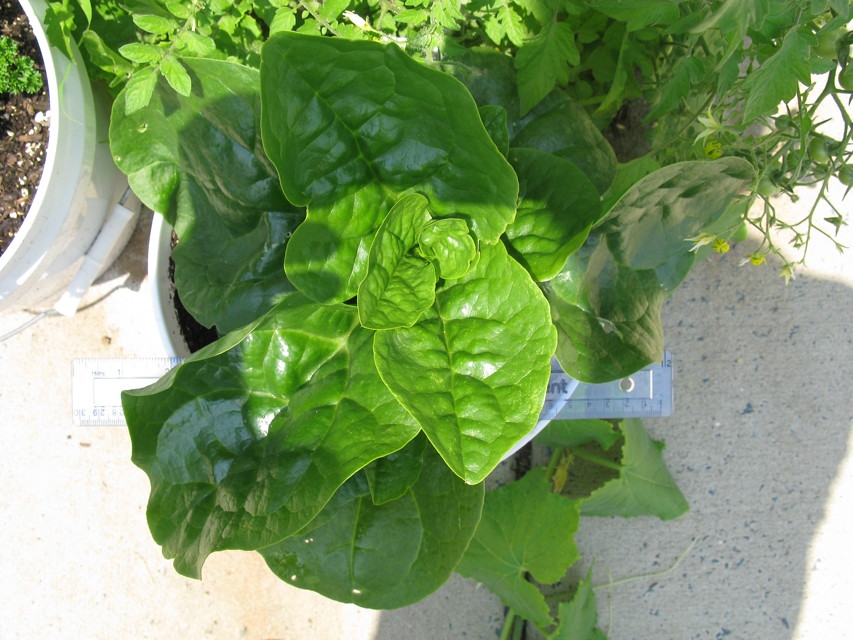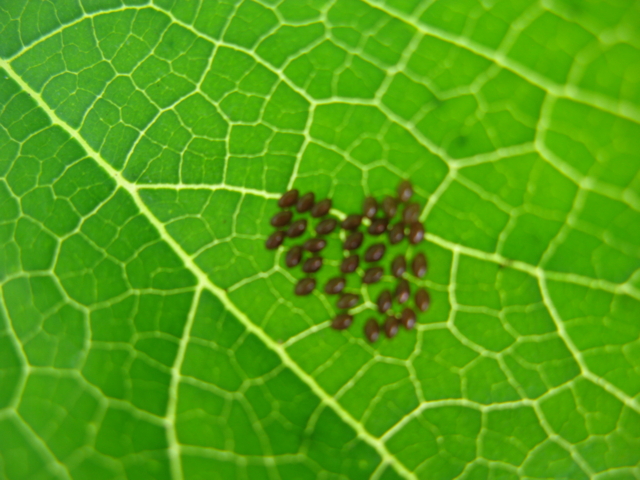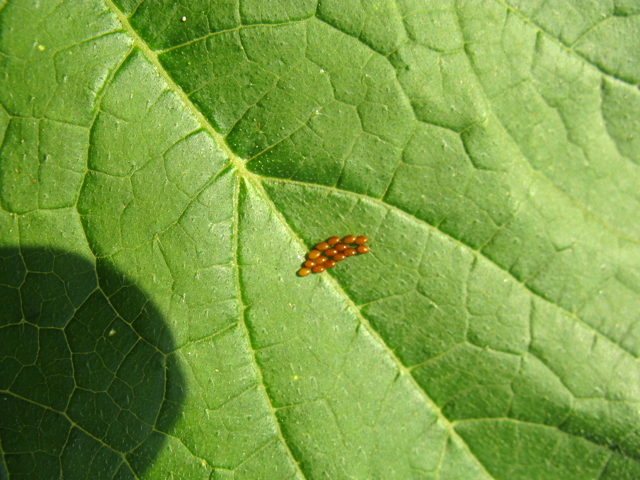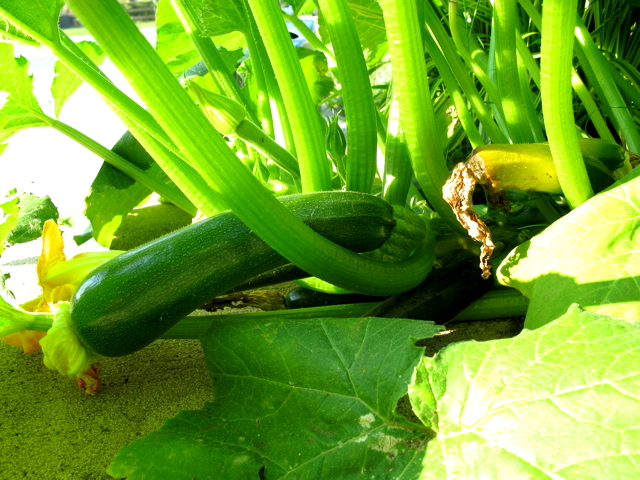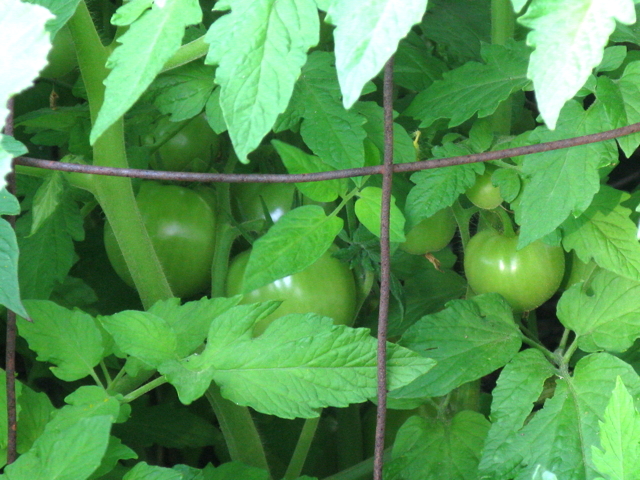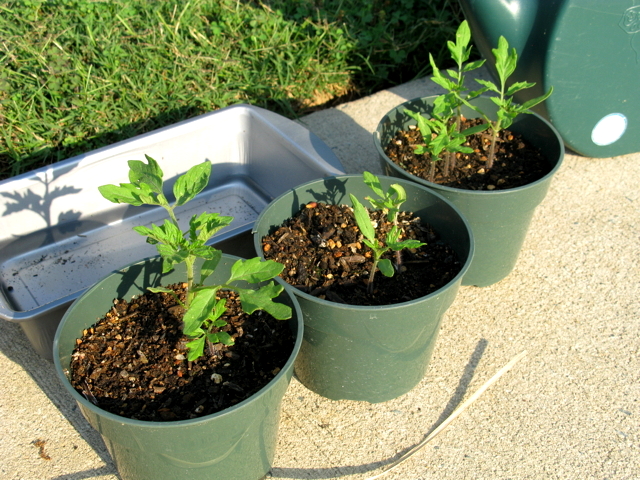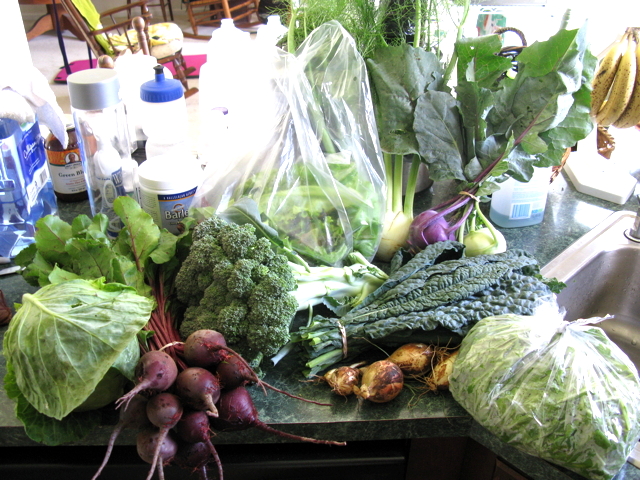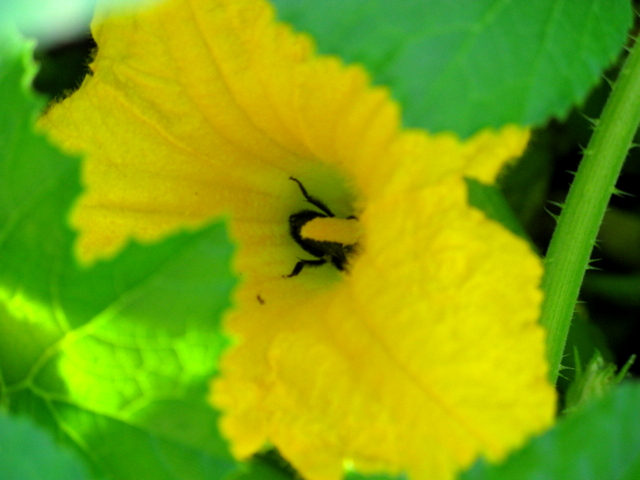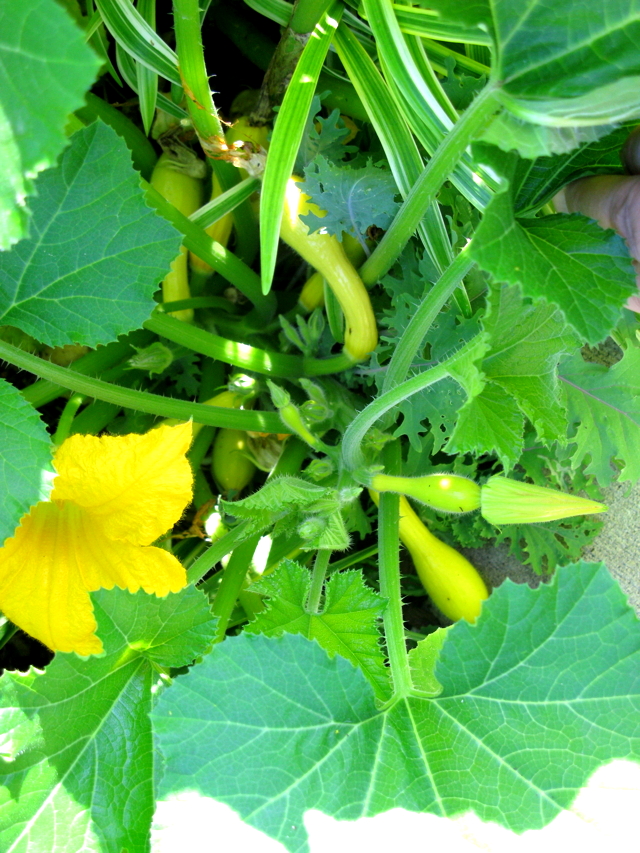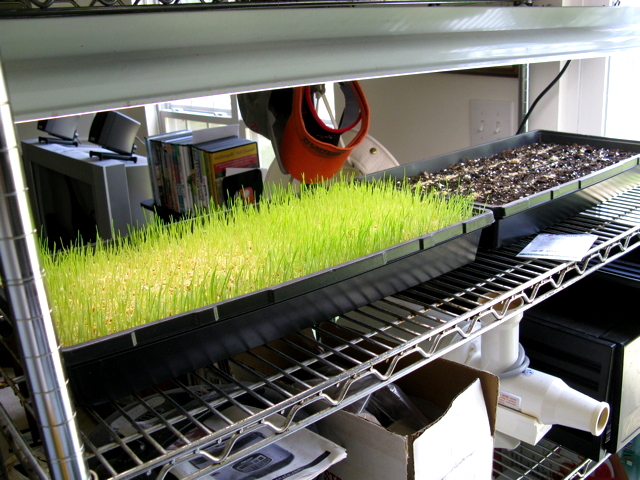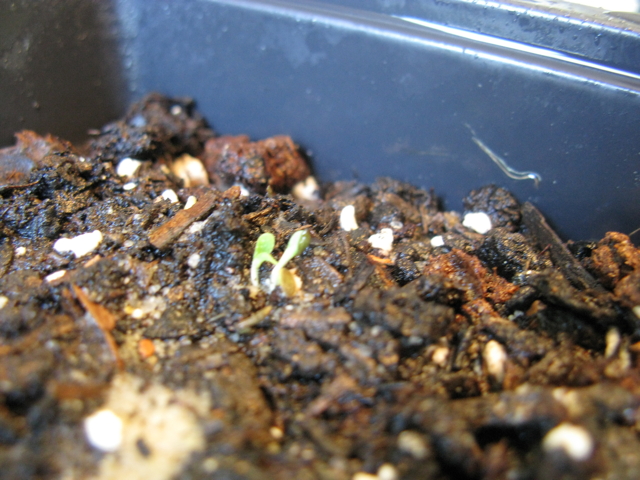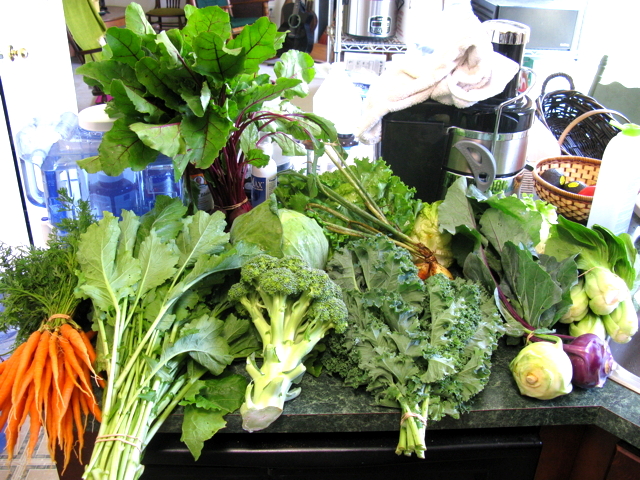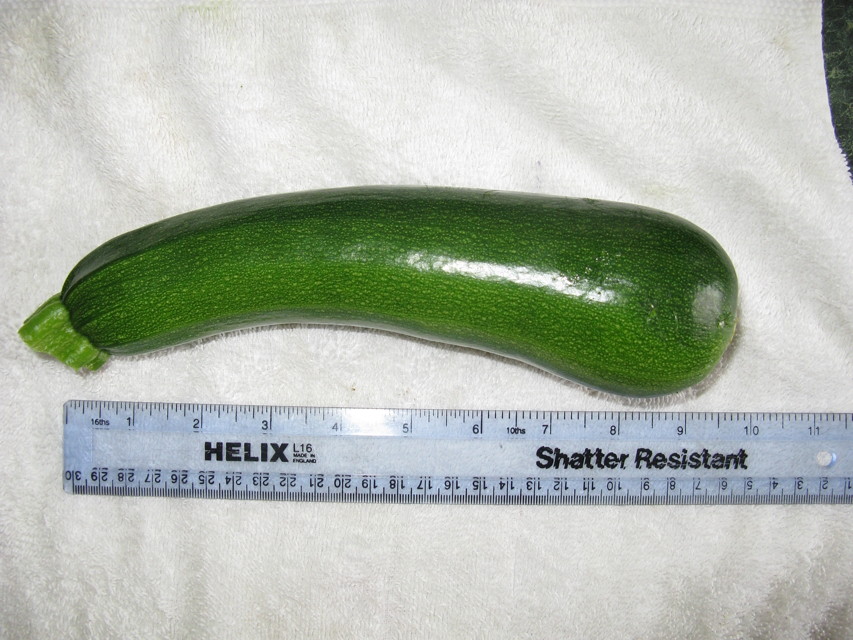
I decided to make some Raw Zucchini Pasta out of it using the Spiral Slicer appliance:
I cobbled together some veggie-heavy pasta sauce and voilà—Raw Zucchini Pasta. If the zuke has been in the refrigerator, the "pasta" will be cold. You can either leave the zuke on the counter for a while before shredding, or, the heated pasta sauce will warm it up. A nice Saturday lunch:
I had read recently about a plant called Malabar Spinach. I was curious about it, wondering if it had been developed at Louis Bromfield's Malabar Farm, but it wasn't. It's a native southeast Asia vining "spinach" bearing the name of the same region of India where Bromfield lived for a while, and for which he named his farm. Malabar spinach isn't really a spinach, and goes by lots of names in Asia. But the leaves can be used like spinach, raw or cooked. It's a vining plant, so I'll need to get it something to climb. Mary Roberts of Windcrest Farm had started some Malabar spinach seedlings this spring so I bought one a few weeks ago at the Matthews Farmers Market. It was just a tiny start when I bought it but it has grown well -- large, deep green leaves; high in several vitamins, fiber, and protein. I haven't tasted it yet but it looks delicious. You can read more about Malabar spinach here:
